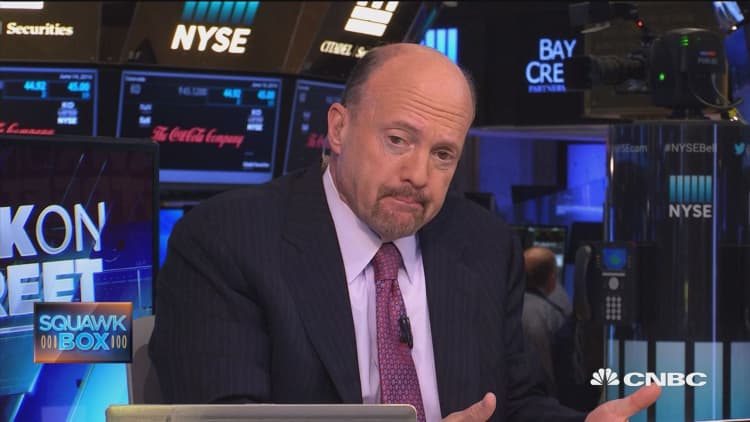
Fund managers' cash levels are at their highest in nearly 15 years amid worries over a British exit from the European Union and the possibility that global monetary policy is failing.
Portfolios are at 5.7 percent cash, the highest level since November 2001 and "consistent with recession," according to the latest Bank of America Merrill Lynch global fund manager survey. Allocation to equities hit a four-year low, though commodity allocation reached a 12-month high.
UPDATE: A look at where cash levels have been historically:
Cash over time
Source: Bank of America Merrill Lynch
The rise in fear comes even though stock market prices continue to hold positive, and estimates are that the string of declines in corporate profits will end in the third quarter. The CBOE Volatility Index, a popular market fear gauge, is around its highest levels since early February.
Brexit was considered the biggest "tail" risk — an improbable but damaging event — for the market, followed by what BofAML terms "quantitative failure," or the misfiring of central bank policies, with China currency devaluation third. Fears over the unsettled U.S. political situation actually edged lower in June.
The good news: BofAML believes the high levels of cash actually could set up a buying opportunity once fears of the British exit from the EU, or Brexit, dissipate. Despite being a catalyst for market worry, two-thirds of the 174 global survey respondents believe the U.K. ultimately will decide to stay.
"While corporate bond and U.S. stock prices are at record highs, investors have a mountain of cash which means negative summer events could thus quickly become tradable buying opportunities," said Michael Hartnett, chief investment strategist. (The is actually about 2.5 percent off its all-time high.)
The contradictions don't end with Brexit: Global growth expectations are at a six-month high, while inflation expectations were at 11-month highs.
Regarding the United States, two-thirds of investors believe the Federal Reserve's tone generally will be "hawkish," though they doubt the central bank will approve a rate hike in June. Markets agree, with traders assigning just a 2 percent likelihood that the Federal Open Market Committee will approve a move at this week's meeting. The FOMC last hiked its rate target in December, the first such move in more than nine years.
Managers identified the path of the U.S. dollar as the most influential driver of stock prices.
Respondents also continue to clamor for companies to put cash to work for purposes other than just returning it to shareholders. Some 51 percent want to see increased capital expenditures (from 46 percent last month), while just 24 percent want it used for buybacks and dividends (up from 21 percent) and 19 percent would like to see balance sheets firmed up (down from 24 percent in May).


